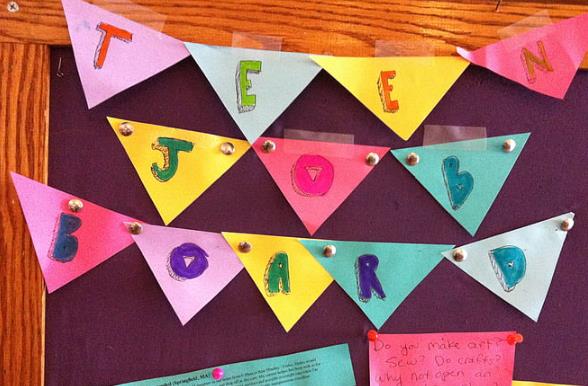关于经历的句子英语初二,八年级上册句子英文

有关经历的句子英语初二
My childhood has gone and can never come back.Yet I still cannot forget the happy clay figures when I was a little boy and was a prince in the family.
My family was not rich,but as there were only two of us in the family,my younger sister and I,we natually became our parents treasures.I will never forget the evenings when,after supper,we sat down together and begged our parents to tell us stories.How I liked those tales told by my mother.
I also remember the days when I fell sick and had to be confined to bed.My parents were then the most unhappy persons in the world.There would be no more fairy tales to be told and the whole family would lose its cheerfulness until I got well gagin.
The recollection of my childhood is like a dream.It can never be recovered.I will remember it forever.
It is appropriate that we should have a special day for you.
有关more英语句子八年级上册?
1.Hed like more time to think things over.他期望有更多时间把情况考虑周详。
2.They couldnt give me any more information.他们不可能给我提供更多的信息。
3.We do not have any more information at the present time.现在我们没有进一步的消息。
八年级下册英语好句子摘抄作文?
A bad beginning makes a bad ending.
不善始者不善终.
A bad thing never dies.
遗臭万年.
A bad workman always blames his tools.
不会撑船怪河弯.
A bird in the hand is worth than two in the bush.
一鸟在手胜过双鸟在林.
A boaster and a liar are cousins-german.
吹牛与说谎本是同宗.
A bully is always a coward.
色厉内荏.
A burden of ones choice is not felt.
爱挑的担子不嫌重.
A candle lights others and consumes itself.
蜡烛照亮别人,却毁灭了自己.
A cat has 9 lives.
猫有九条命.
A cat may look at a king.
猫也可打量国王,意为人人平等.
A close mouth catches no flies.
病从口入.
A constant guest is never welcome.
常客令人厌.
Actions speak louder than words.
事实胜于雄辩.
Adversity leads to prosperity.
穷则思变.
初中英语句型中的九大词性?
词类又叫词性,英语单词按照其在句子中的功用,可以分成十个大类。
1.名词noun n. student 学生
2.代词pronoun pron. you 你
3.形容词adjective adj. happy 高兴的
4.副词 adverb adv. quickly 快速地
5.动词verb v. cut 砍、割
6.数词numeral num. three 三
7.冠词article art. a 一个
8.介词preposition prep. at 在...
9.连词conjunction conj. and 和
10.感叹词interjection interj. oh 哦
前六类叫实词,后四类叫虚词。
二、名词
2)若名词已有复数词尾-s ,只加“”,如:the workers’ struggle工人的斗争。
三、代词
相当大一部分代词具有名词和形容词的功能。
英语中的代词,按其意义、特点及在句中的作用分为:人称代词、物主代词、指示代词、反身代词、相互代词、疑问代词、关系代词、连接代词和不定代词九种
人称代词的用法:
I saw her with them, at least, I thought it was her.我看到她和他们在一起,至少我觉得是她。(her做宾语,them做介词宾语,her作主补)
a. - Who broke the vase?-谁打碎了花瓶?
b. - Me.-我。
并列人称代词的排列顺序
1) 单数人称代词并列作主语时,其顺序为:
第二人称 you
第三人称 he/she;it
第一人称 I
如:You, he and I should return on time.
2) 复数人称代词作主语时,其顺序为:
第一人称 we
第二人称 you
第三人称 they
反身代词
thirty-first-31st
基数词变序数词的巧记口诀
一,二,三要全变;(one-first; two-second;three- third)
其余都加th,
th里有例外,8去t,(eight-eighth) 9去e(nine-ninth)
字母f代ve(five-fifth; twelve-twelfth);ty变成tie(twenty-twentieth)
若要变化几十几,只变个位完全就能够(twenty-one-twenty-first)
数次的用法
1)倍数表示法
a. 主语+谓语+倍数(或成绩)+ as + adj. + as
I have three times as many as you.我有你三倍很多。
b. 主语+谓语+倍数(成绩)+ the size (amount,length…) of…
The earth is 49 times the size of the moon.地球是月球的49倍。
c. 主语+谓语+倍数(成绩)+ 形容词(副词)比较级+ than…
The grain output is 8 percent higher this year than that of last year.
d. 还可以用by+倍数,表示增多多少倍
The production of grain has been increased by four times this year.
2)成绩表示法
构成:基数词代表分子,序数词代表分母。分子大于1时,分子的序数词用单数,分母序数词用复数:1/3 one-third ;3/37 three and three-sevenths
六、形容词及其用法
主要用来修饰名词的词,表示事物的特点。
形容词用来修饰名词或代词,表示人或事物的性质、状态,和特点的程度好坏,与否。
形容词作定语修饰名词时,要放在名词的前边。但是,假设形容词修饰以-thing为字尾的词语时,要放在这些词后面,比如:something nice
以-ly结尾的形容词
1)friendly,deadly,lovely,lonely,likely,lively,ugly,brotherly,仍为形容词。
2)有部分以-ly 结尾既为形容词,也为副词。
daily,weekly,monthly,yearly,early
The Times is a daily paper. The Times is published daily.
用形容词表示类别和整体
某些形容词加上定冠词可以泛指一类人,与谓语动词的复数连接。
如:the dead,the living,the rich,the poor,the blind,the hungry
七、副词及其基本用法
副词(adverb,简写为adv)是一种用来修饰动词、形容词、全句的词,说明时间、地址位置、程度、方法等概念的词。副词是一种半虚半实的词。
副词可分为:地址位置副词、方法副词、程度副词、疑问副词和连接副词。
兼有两种形式的副词
1) close与closely
close意思是“近”;closely 意思是“认真地”
He is sitting close to me. Watch him closely.
2)late 与lately
late意思是“晚”;lately 意思是“近”
You have come too late. What have you been doing lately?
形容词与副词的比较级
相当大一部分形容词(性质形容词)和副词有比较级和高级的变化,即原级、比较级和高级,用来表示事物的等级差别。原级即形容词的原形,比较级和高级有规则变化和不规则变化两种。
1) 规则变化
方法介词
as作为/当作..., by用/由/乘坐/被..., in用…(语言), like与…一样, on骑(车)/徒(步),通过(收音机/电视机), over通过(收音机), through通过..., with用(材料),用(手/脚/耳/眼), without没有…
涉及介词
about有关..., except除了…, besides除了…还... for针对/就…来说, in在…(方面), of…的,相关..., on有关/相关..., to对…来说, towards针对..., with就…来说
其它介词
【目标介词】 for为了..., from防止…, to为了…
【因素介词】 for因为..., with因为…, because of因为...
【比较介词】 as与…一样,like象…一样,than比...,to与…相比, unlike与…不一样
声明:该文观点仅代表作者本人,华宇考试网系信息发布平台,仅提供信息存储空间服务。
对内容有建议或侵权投诉请联系邮箱:e8548113@foxmail.com




